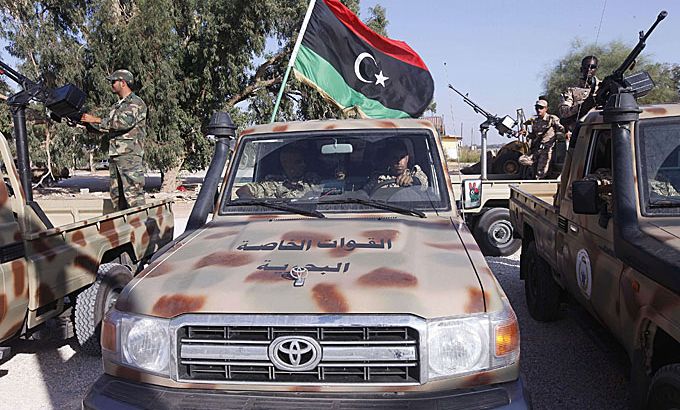
Libya: A year after Gaddafi
Faced with the threat from armed militias, we ask if the country is on track to complete the transition to democracy.
A year ago Libyans celebrated the end of Muammar Gaddafi’s rule. He was captured and killed on October 20, 2011.
Although the country’s prospects seemed bright back then, its transition to democracy has been far from easy.
|
“There is a history of dislike between Misrata and Bani Walid .… But the government and also the GNC (General National Congress) do not really understand the nature of the relation but also do not see the strategic outcome of such a conflict, and therefore the decision of trying to settle it militarily isn’t a wise one.” – Faraj Najem, a Libyan historian |
Libya is facing profound challenges – most notably the threat from armed militias.
The current fighting over the city of Bani Walid, which was a Gaddafi stronghold, is the latest example.
Government-aligned militias are battling armed groups who claim to be Gaddafi loyalists.
The latest round of violence there was triggered by the death of Omran Shaaban, the soldier credited with capturing Gaddafi last October.
The Libyan government has vowed to dissolve militias that are not under state control.
In this episode of Inside Story we ask: Is Libya on the track towards meaningful democracy? What more needs to be done before the country can be declared truly liberated?
Joining the discussion with presenter Adrian Finighan are guests: Abdelmonem Alyasser, a Libyan MP and a member of the National Security Committee; Jason Pack, a researcher of Libyan history at St Catherine’s College, Cambridge University; and Faraj Najem, a Libyan historian and author of Tribes, Islam and the State of Libya.
|
“When [PM Abdurrahim al-Keib] took office after the liberation there was a jubilant and enthusiastic crowd including the rebels who were armed and ready to support him in building a police force and a national army, and basically disarming the different militias … but unfortunately his incompetent government was not able to act accordingly.” Abdelmonem Alyasser, a Libyan MP |
Key events in Libya:
|